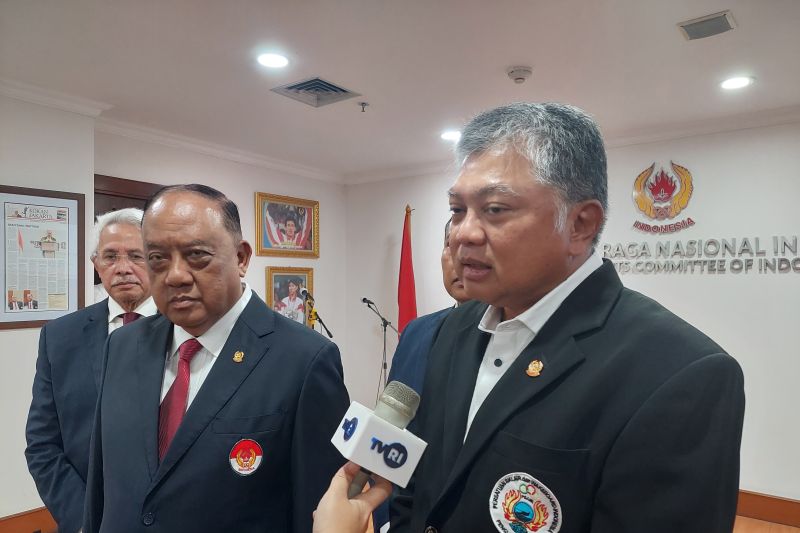After watching a recorded Australian Rules football game on television from her home in Indonesia, Siti Nurbaeti became curious about the sport.
“The shape of the ball is not even round, it would … make an odd bounce,” Ms Nurbaeti said.
She also thought Aussie rules footy looked “very tough”, so was worried when a friend asked her to join an AFL training clinic in Central Java.
“It turned out to be quite fun”, Ms Nurbaeti said.
“I’ve learned how to kick and pass the ball.”
Siti Nurbaeti is among the many young Indonesian Muslim women learning Aussie rules footy. (Supplied)
The 19-year-old student is one of an increasing number of women in Indonesia picking up a footy not only to get fit but also try to understand more about Australian culture.
“I want to continue to play footy and I hope I would have an opportunity to play it in Australia,” she said.
According to AFL Asia, there has been “a considerable increase in female participation” in the sport in Jakarta and Bali over the past two years.
AFL Asia also reported a 99 per cent rise in participation in development programs across Indonesia from 2020 to 2021, despite the challenges of the pandemic that slowed growth in other Asian countries.
This jump in Indonesia is attributed to the increasing popularity of mixed domestic league teams, like the Jakarta Bintangs and the Bali Geckos.
AFL Asia runs AFL development programs in many countries across Asia. (Supplied)
‘I felt welcomed and enjoyed the game’
AFL in Indonesia will be one of the topics discussed at a seminar on sports diplomacy and Australia-Indonesia relations hosted by Monash University today.
Speakers at the seminar include Indonesia’s first female AFL accredited coach, Ana Surjanto, who will share her experiences on running footy training for women.
Ms Surjanto has trained hundreds of young Muslim women like Ms Nurbaeti, both from her university and other Islamic boarding schools in Central Java.
Loading
“They usually have free time on the weekends, and I want them to understand this Australian culture,” she said.
She recently resumed her training clinics in Indonesia after a pause because of the pandemic.
Ms Surjanto was exposed to footy when she studied at Monash University in Victoria in 2016.
“I wanted to be active in sports and I saw Melburnians really like the footy,” she said.
She contacted the Krakatoas Football Club, whose members are mostly footy fans from Indonesia in Melbourne, and started to watch and learn how to play games.
“When I finally watched a footy match live at the MCG for the first time, I was amazed,” Ms Surjanto said.
“I saw people from various backgrounds mingling to support their team.
“As someone who wears a hijab, I felt welcomed and really enjoyed the game.”
She brought this experience home to Indonesia and has made it her mission to use footy to develop women’s “self confidence and team work”.
“I am passionate about women’s empowerment,” she said.
Ana Surjanto says women are empowered by learning to play footy.(Supplied)
Ms Surjanto got her AFL level one accreditation in 2018 after passing an exam run by AFL Indonesia with Australian examiners.
She said running the training program had many challenges, including having to train “hundreds women”.
Ms Surjanto is now seeking more funding to support her footy clinic and expand her sessions to include online training programs.
Krakatoas Football Club founder Iain Shearer (far right) says the popularity of footy has grown in Indonesia in recent years.(Supplied: Krakatoas Football Club)
AFL aims to grow the game in Indonesia
Iain Shearer, from AFL Indonesia and founder of the Krakatoa’s, said footy is not as popular as soccer in Indonesia, but it had seen continued growth with high rates of participation.
“AFL Indonesia aims to grow the game in the country,” Mr Shearer said.
“We had about 8,000 students go through our development program [in Asia].”
The Bali Geckos said they planned to host a women’s tournament in Bali later this year with other teams from Asia, and possibly Australia, coming to play.


